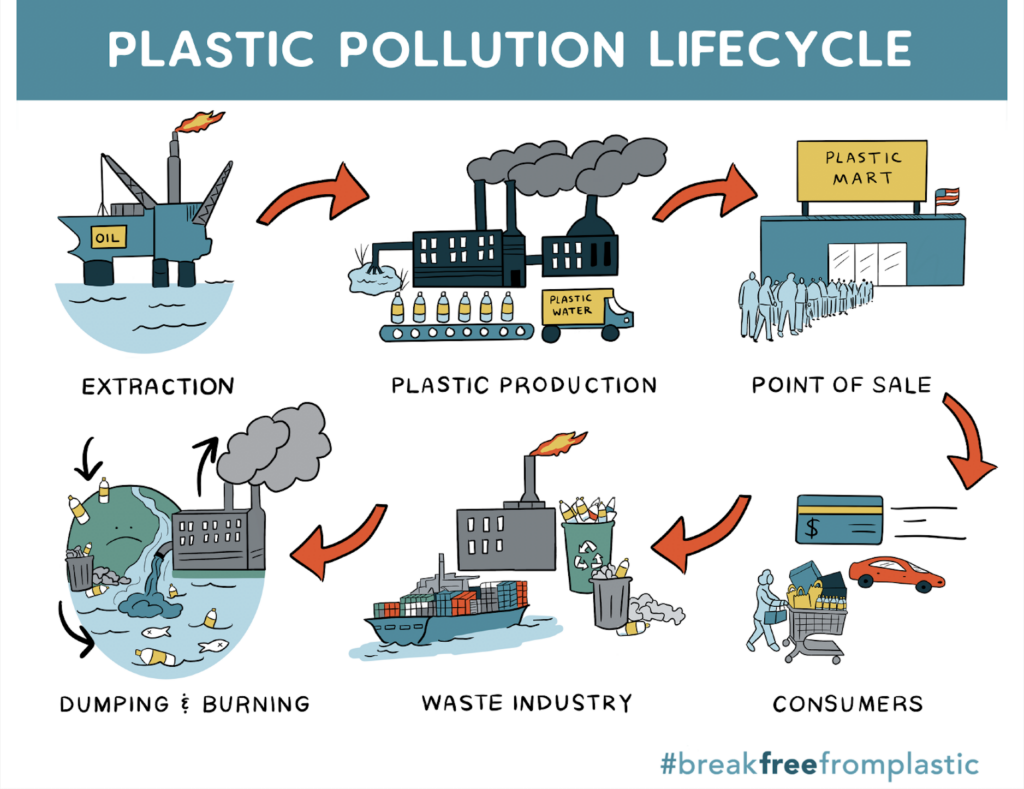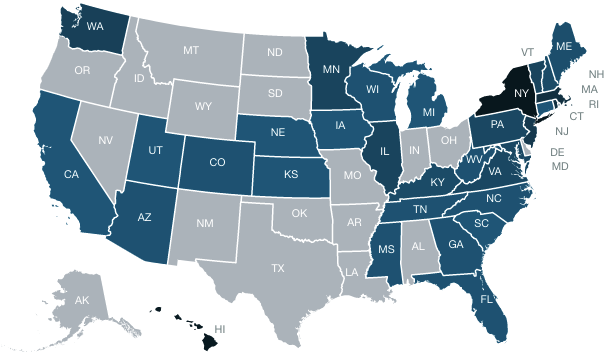
NCEL Blog
Plastic Pollution and Public Health: A Toxic Relationship
March 5, 2020
Overview
Research emphasizes that single-use plastic is not just an issue of pollution but also has major implications for human health. A report from the Center for International Environmental Law (CIEL) revealed that plastic negatively impacts public health through exposure to toxic chemicals at each stage of its life cycle – from extraction and processing to its end-of-life in a landfill or drinking water. While legislators continue to introduce legislation to address toxic chemicals and plastic pollution separately, legislation can often tackle both.
Single-use items and toxic chemicals: what’s the relation?
In CIEL’s 2019 report, they run through countless ways plastic production and consumer plastic items can negatively impact our health. For example, during production, plastics are often mixed with certain additives such as flame retardants and phthalates to increase a product’s durability or flexibility. However, exposure to sun and water degrades these materials into small particles called microplastics. These microplastics end up in our drinking water, food, and air.

Exposure During Consumer Use
After production, plastic continues to threaten human health as it makes its way into consumer products and ultimately, our bodies. One of the most significant vessels for single-use plastics and toxic chemical exposure is through single-use food packaging and food contact materials. Certain food packaging – items like to-go cups and containers as well as wrappers– contain poly- and perfluoroalkyl chemicals (PFAS chemicals) for their non-stick properties as well as chemicals like phthalates.
PFAS chemicals, phthalates, and other chemicals used in food packaging leach into our food. One study found food packaging-related chemicals in food at levels 100 times higher than pesticide residues. These chemicals are known to cause a slew of adverse health impacts, including cancer, reproductive issues, and thyroid disruption. This is cause for concern given how widespread these items are – in the EU alone, consumers used over 1.13 trillion items of food and drink packaging, most of which were plastic, over the course of just one year.
Exposure From Waste Management and End-of-Life
Many businesses have recently turned to single-use compostable to-go containers in an effort to reduce reliance on single-use plastic. Unfortunately, a recent study found that certain compostable items also contain PFAS leading to contaminated soil, water, and food.
Even in its end-of-life phase, whether in the ocean or in a landfill, plastic can pose a threat to health. Plastic has the ability to absorb chemicals over its lifetime, particularly when in the ocean. At the same time, plastics can leach chemicals into the environment when heated or exposed to the sun.
How legislation can indirectly and directly address both toxics and pollution
While all this paints a grim picture, legislators have taken action to reduce single-use plastics and address these chemicals, all while building momentum.
Single-Use Bans
Thirteen states have passed single-use bans on items like carryout bags, polystyrene, and straws, including Vermont’s bill banning all three items. This number will likely continue to grow; there are over 150 bills under consideration during the 2020 legislative session just to ban single-use plastic items. While addressing plastic pollution at its source, these bans will also reduce the presence of toxic chemicals in the environment.
Regulating PFAS and Phthalates
In 2018, Washington became the first state to ban PFAS and phthalates in food packaging upon finding a safer alternative. This will protect public health and help to ensure all certified compostable products will be effective and safe. Over 30 bills have been introduced to address PFAS in food packaging since Washington’s 2018 bill. In 2019, Maine signed a bill to ban PFAS and phthalates into law.
Recycling: a solution to plastics or a problem for toxics?
Conversation, attention, and awareness continue to build around the public health concerns of plastic pollution. As states build out their recycling infrastructure and increase recycling mandates, this linkage needs to be directly addressed. Experts note that while increasing recycled content will reduce plastic pollution, it has the potential to reintroduce toxics chemicals into consumer products like food packaging.
Given these concerns, Maine has integrated this public health lens into its new extended producer responsibility bill. Last month, Maine’s Department of Natural Resources introduced LD 2104 which would ultimately fund recycling measures and tax producers for the waste they create. The bill explicitly addresses toxicity with provisions that seek to incentivize producers to reduce the toxicity of their packaging. It would also tax producers for the use of toxic packaging material, particularly for food contact chemicals of high concern.
This language sets a strong precedent for legislation, particularly dealing with recycling, to address both plastic pollution and health hazards.
